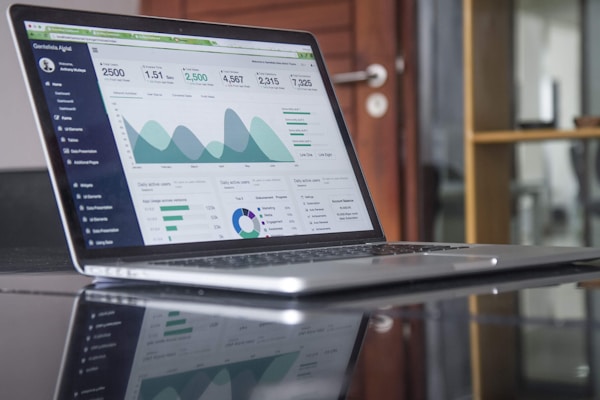The landscape of work has undergone a seismic shift. What began as a temporary response to global events has evolved into a permanent transformation of how we approach productivity, collaboration, and work-life balance.
As we navigate through 2025, remote work is no longer just an option—it's become the preferred mode of operation for millions of professionals worldwide. But with this evolution comes new challenges: How do we maintain team cohesion across time zones? How do we preserve company culture in a digital-first environment? How do we ensure productivity without sacrificing employee well-being?
The answer lies in leveraging the right tools. Not just any tools, but those specifically designed to address the unique challenges of distributed teams. In this comprehensive guide, we'll explore ten game-changing platforms that are redefining what it means to work remotely in 2025.
Table of Contents
- 1. Advanced Communication Platforms
- 2. Next-Gen Project Management
- 3. Asynchronous Collaboration Tools
- 4. Virtual Office Environments
- 5. Smart Time Tracking & Analytics
- 6. Employee Well-being Platforms
- 7. Knowledge Management Systems
- 8. Workflow Automation Tools
- 9. Enterprise Security Solutions
- 10. Integration Platforms
1. Advanced Communication Platforms
Communication is the lifeblood of any remote team. In 2025, we've moved beyond simple messaging apps to sophisticated platforms that understand context, prioritize messages by importance, and even suggest optimal meeting times based on team members' productivity patterns.
"The future of communication isn't about more messages—it's about smarter, more meaningful interactions that respect everyone's time and attention."
— Dr. Emily Rodriguez, Organizational Psychologist
Leading platforms now incorporate AI-powered features that can summarize long threads, automatically translate messages in real-time across 50+ languages, and even detect when team members might be experiencing burnout based on communication patterns.
💡 Pro Tip
Set clear communication protocols for your team. Designate specific channels for urgent matters, general updates, and social interactions. This structure prevents notification overload while ensuring critical information doesn't get lost.
2. Next-Gen Project Management
Project management tools have evolved from simple task lists to comprehensive platforms that provide real-time visibility into project health, resource allocation, and potential bottlenecks before they become problems.
Modern solutions offer:
- Predictive Analytics: AI algorithms that forecast project completion dates with 95% accuracy
- Resource Optimization: Automatic workload balancing to prevent team member burnout
- Custom Workflows: Infinitely adaptable processes that match your team's unique methodology
- Real-time Collaboration: Multiple team members can work on the same project plan simultaneously
Ready to Transform Your Remote Team?
Start your free 14-day trial of Workweek and discover how our integrated platform can streamline your entire workflow.
Start Free Trial →No credit card required. Cancel anytime.
3. Asynchronous Collaboration Tools
One of the biggest breakthroughs in remote work has been the shift from synchronous to asynchronous collaboration. When your team spans from San Francisco to Singapore, real-time meetings become increasingly impractical and exhausting.
Asynchronous tools allow team members to contribute on their own schedule while maintaining high levels of collaboration:
Video Messages
Replace unnecessary meetings with recorded updates that team members can watch at their convenience.
Collaborative Docs
Work together on documents with threaded comments and version history that preserves every change.
Design Feedback
Annotate designs, prototypes, and mockups with contextual feedback that designers can address asynchronously.
Threaded Discussions
Organize conversations by topic so important decisions don't get lost in chat chaos.
4. Virtual Office Environments
The loss of spontaneous "water cooler" conversations was one of the biggest challenges of early remote work. Virtual office platforms have emerged to recreate these serendipitous interactions in digital spaces.
These platforms create persistent virtual offices where team members can:
- See who's available and what they're working on
- Hop into quick audio/video conversations with a single click
- Gather in virtual rooms for brainstorming sessions
- Participate in virtual social events and team building

5. Smart Time Tracking & Analytics
Understanding how time is spent has become crucial for remote teams. But modern time tracking isn't about micromanagement—it's about insight and optimization.
The latest generation of time tracking tools provides:
6. Employee Well-being Platforms
Remote work can blur the boundaries between professional and personal life. Leading companies are now prioritizing employee well-being with dedicated platforms that monitor and support mental health, physical wellness, and work-life balance.
These comprehensive platforms typically include:
- Mental Health Support: On-demand access to licensed therapists and counselors
- Wellness Challenges: Team-based fitness and mindfulness competitions
- Burnout Prevention: AI-powered alerts when work patterns indicate potential burnout
- Work-Life Balance Metrics: Personal dashboards showing after-hours work trends
7. Knowledge Management Systems
When your team is distributed, institutional knowledge can easily become siloed. Modern knowledge management systems serve as a single source of truth for everything from company policies to technical documentation.
"We reduced onboarding time by 60% after implementing a proper knowledge management system. New hires can now find answers instantly instead of waiting for someone in their timezone to wake up."
— Marcus Thompson, Head of Engineering at TechCorp
8. Workflow Automation Tools
Automation has become the secret weapon of high-performing remote teams. By eliminating repetitive tasks, teams can focus on creative problem-solving and strategic thinking.
🚀 Automation Use Cases
- Automatically generate daily standup reports from task management tools
- Route support tickets to the right team member based on expertise
- Create onboarding workflows that trigger based on hire date
- Sync data between multiple platforms without manual entry
- Generate weekly reports and send them to stakeholders automatically
9. Enterprise Security Solutions
With team members accessing company resources from home networks, coffee shops, and coworking spaces, security has never been more critical. Enterprise security platforms now offer:
- Zero-trust architecture that verifies every access request
- VPN alternatives with better performance and security
- Automated compliance monitoring and reporting
- Threat detection powered by machine learning
- Device management across all employee devices
10. Integration Platforms
The average remote worker uses 10+ different tools daily. Integration platforms serve as the connective tissue, ensuring all your tools work together seamlessly.

The Future is Here
As we move deeper into 2025, the tools we use for remote work continue to evolve at an unprecedented pace. The ten categories we've explored represent not just technological advancement, but a fundamental reimagining of how work gets done.
The most successful remote teams aren't those with the most tools—they're the ones who thoughtfully select and integrate platforms that address their specific challenges while fostering connection, productivity, and well-being.
The future of work isn't about returning to offices or staying fully remote—it's about giving teams the flexibility and tools to work from anywhere, anytime, while maintaining (and even exceeding) the productivity and culture of traditional office environments.
Ready to Build Your Perfect Remote Work Stack?
Workweek integrates with all the tools mentioned in this article, providing a unified platform for managing your remote team's productivity, collaboration, and well-being.
Join 10,000+ teams already using Workweek to transform their remote work experience.




Join the Discussion
Share your thoughts and experiences with remote work tools. What's working for your team?
💬 Comments are enabled via your preferred platform: